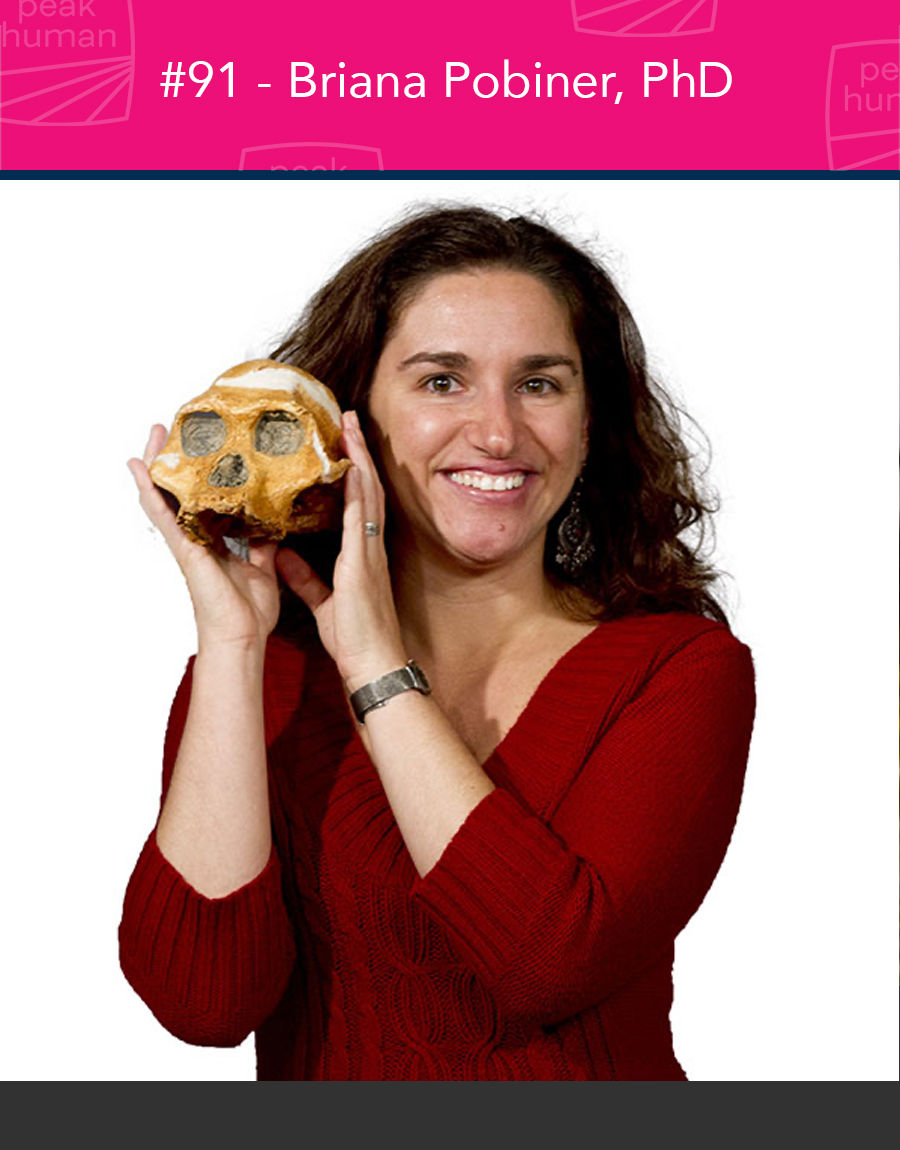Briana Pobiner, PhD on Meat-Eating Throughout Human History
- Brian

- Jul 7, 2020
- 3 min read
Updated: Jul 7, 2020

Listen on
Apple Podcasts // Spotify // CastBox // Overcast
Hey there everyone, I hope you all had a great 4th of July weekend. Los Angeles tried to cancel it by closing all the beaches, the one place that would assumably be safe to spend some time outdoors with friends and family and soak up some vitamin D, so I spent some time in beautiful San Diego where people enjoyed the independence and freedom America fought for.
Today I’m talking to Dr. Briana Pobiner who is a paleoanthropologist and works at the Smithsonian National Museum of Natural History and put together the Hall of Human Origins. Her research centers on the evolution of the human diet (with a focus on meat-eating), but has included topics as diverse as chimpanzee carnivory and cannibalism in the Cook Islands. She has done fieldwork in modern ecosystems, conducted excavations, and studied fossil collections in Kenya, Tanzania, South Africa, Indonesia, and Romania and has published many scientific papers on these topics. Additionally, she serves as an Associate Research Professor of Anthropology at George Washington University. For more info see https://naturalhistory.si.edu/staff/briana-pobiner
We go through the entire history of human meat-eating starting with when we split off from our ancestors 6-7 million years ago. We even get into chimp hunting and meat-eating as well. If you are a member of the Sapien Tribe you’ll get the bonus part of the episode where we cover cannibalism. Pretty wild stuff here.
We still have some lifetime memberships available at a deep discount. This is funding all the content we are making at sapien.org that will only increase in the future. We are completely community-powered and I’d like to keep it that way.
If you are ready to lose some serious weight you can also find out about our new Sapien Program at http://sapien.org We are offering a 10-week program that will change your life. We have all the materials and information to educate you, as well as health coaches to guide you in your journey. The info is all out there, but we have done the work to make it simple and actionable and keep you accountable. We have a special price for the program for a limited time. You can find out more at http://sapien.org and grab our free Sapien Food Guide there as well.
Of course, there’s always the grass-fed and finished meat at http://nosetotail.org and you can help us out by giving this podcast a review on iTunes or the podcast app and sharing it with family and friends. Like I always say, I’d strongly recommend going back and starting with episode one or working backward to the beginning. Now please enjoy this episode with Dr. Briana Pobiner.
BUY THE MEAT NosetoTail.org
Support me on Patreon! http://patreon.com/peakhuman
Preorder the film here: http://indiegogo.com/projects/food-lies-post
SHOW NOTES
[5:35] Her experience in field work.
[8:00] Different forms of research and history we can look into to learn more.
[11:00] The importance of looking into modern hunter gatherers.
[15:00] Chimps and how they hunt monkeys.
[18:35] The timeline of how animal scavenging and butchery evolved for early humans.
[28:10] What is leftover when free ranging predators would hunt and eat prey.
[33:05] Some limitations of research into paleoanthropology and aspects of her research.
[37:35] Aquatic sources of food for early humans.
[40:35] Her take on the modern carnivore diet.
[45:05] Increase in meat consumption as well as brain and body size. https://www.journals.uchicago.edu/doi/abs/10.1086/204350?journalCode=ca
[51:25] Around half a million years ago we see evidence of spear points used for hunting.
[59:25] Humans’ adaptation to be able to digest lactose.
[1:05:10] Modern humans have very diverse diets and this lends to our success.
[1:07:05] The presence of prehistoric DNA. https://www.sciencedirect.com/science/article/pii/S0305440316301005?via%3Dihub
[1:10:05] The extent of our current fossil records.
[1:12:15] Her current research and what she hopes to find out.
BUY THE MEAT NosetoTail.org
Support me on Patreon! http://patreon.com/peakhuman
Preorder the film here: http://indiegogo.com/projects/food-lies-post
Film site: http://FoodLies.org
YouTube: https://www.youtube.com/c/FoodLies
Follow along:
Theme music by https://kylewardmusic.com/





Comments